The Vijay Sethupathi Interview | 'Cinema Is Not What One Person Does'
In a freewheeling conversation with Subha J Rao, the Maharaja star thinks aloud on cinema, love and life.
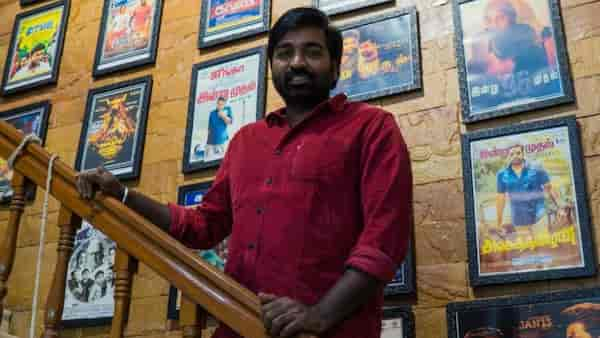
Last Updated: 12.18 AM, Jun 17, 2024
IT’s three in the afternoon, and Chennai’s blazing sun is out. We park outside a nondescript independent house in Valasaravakkam, home to many people from the film industry. Inside, there’s a frisson of excitement in Vijay Sethupathi’s sparsely-done up office where a photo of the late director SP Jananathan looms large on a wall and another is filled with framed posters of his films. The Maharaja star suddenly walks in. There’s a quick hello to the band of boys waiting for him, before he calls for some hot water and lemon. “You need half-an-hour, ma? Will I have anything to speak (about) for so long?” he asks, before we walk into a tidy office space where the wall is choc-a-block with art. As with all things Vijay, there’s a heartwarming story there too. “You know who painted these? Kavin, who is four years old. His father, cinematographer Dinesh, once sent me what his kid drew. He was two years old then. I’ve collected many of his works and am amazed at how much his lines speak, and how they beautifully convey so much in their simplicity,” he says, opening his phone to show more of the child’s works.
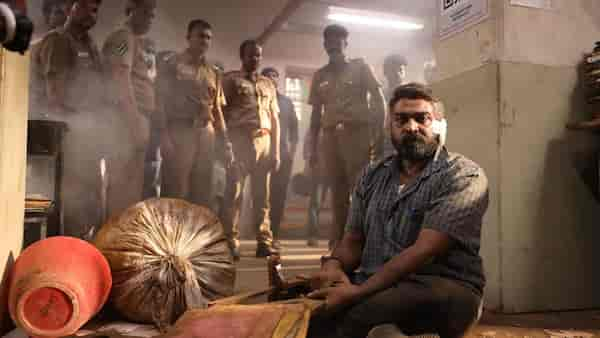
This ability to make friends across ages and categories is among the reasons why people of all demographics are drawn to the actor. Once the conversation begins, Vijay takes his time to ponder before replying. He makes himself some hot lemon water using very precise movements, almost like the musical metre he uses for dialogue delivery.
That famed rhythm of his, well known to his loyal Tamil base, was very evident to Hindi audiences in Sriram Raghavan’s delightful Merry Christmas (Netflix), co-starring Katrina Kaif. There is a certain softness, tenderness and vulnerability to his Albert Arogyasamy despite his character hovering around the hues of grey. And Vijay brought to the table a certain delectable casualness. This, the much-feted actor, fondly called Makkal Selvan in his home state of Tamil Nadu, says is because of the off-screen camaraderie among the team that made the film.
“I spent about 30-35 days before the shoot with Sriram Raghavan. We interacted, discussed, spent quality time, spent time not really doing anything useful — I call this ‘stupid’ time. All this is needed to understand the person who is going to direct you. So that, when you go to the set, it becomes easier to improvise, he understands you better, you understand his thought process and his visualisation better. There are 10-15 layers between an actor and director and this time helps you cross them easily and reach the other side.”

This vetti time (loosely translated from Tamil as jobless, free time) as Vijay calls it, helps. “In the eight hours we spent together a day, we might have worked for an hour, spoken about random things for some hours, listened to songs, discussed movies, or just sat in silence. That is needed to understand a person. And once that happens, the rest flows. And you don’t have to be conscious around the other. The performance just happens.”
Incidentally, just before the run-up to Merry Christmas, many film sites ran earlier clippings of Katrina Kaif politely calling out her co-stars for restricting their description of her to her looks or hard work. Vijay was a rarity that way — he always made mention of why she was a good co-star, and why he liked her performance. It was all matter-of-fact, never patronising, and her performance eventually won critical acclaim.
But that was nothing new for Vijay, who has always backed his co-stars. “We all seek recognition at some level, and for our abilities, not just for how we look. I don’t think I did anything different. If someone does their job well in front of you, you like to appreciate them, right? You’ll speak about it, because I spoke about Katrina on camera. On set, I tell everyone from the focus puller to the set assistant if they’ve done a good job. Cinema is not what one person does. It can be one person’s vision, but many help bring it to life. If one person does something wrong, or is lethargic, the effect goes. And so, it is important to appreciate good work,” he says.
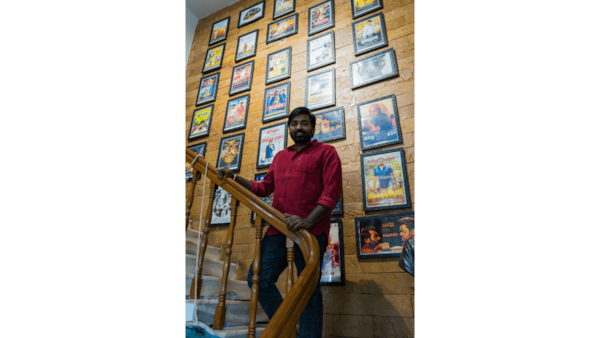
On the occasions that Vijay speaks to the media, he likes to engage, and reply after thought. “I like questions that make me think. Because that’s your thought. When I get asked a good question, my mind searches for a reply. And that reply is yours for now, and mine for life. You help me answer a question I didn't know existed. These questions are major realisations. Much like a good co-star — they enhance your performance while carrying out theirs.”
Vijay traces the root of his friendly demeanour — he’s famously known to hug his co-stars and fans and kiss them on the cheek — to his belief that shared experiences make everyone better. “Let’s not compare at all. Not everyone is born with ability or brains. We all learn when we share, talk, have conversations. We are the sum total of our experiences. You might think you’re self-made, but no, we are all interdependent.”
Vijay has always maintained that every creation out in the public sphere will receive criticism and that it is valid. He only wishes it were constructive and does not reduce a person. “See, a choice you make will not be validated because some people agree, nor will it be invalidated because they don’t. And, I’ve reached this place after 13 years in cinema and after having seen money, people, friendships and relationships. Everyone has the right to choose, and it might not go your way, and that’s okay. In the end, I decide how I will live. If I like my choice to be respected, I ought to respect others’ choices. I like to believe I am adaptable, not adamant,” says Vijay.
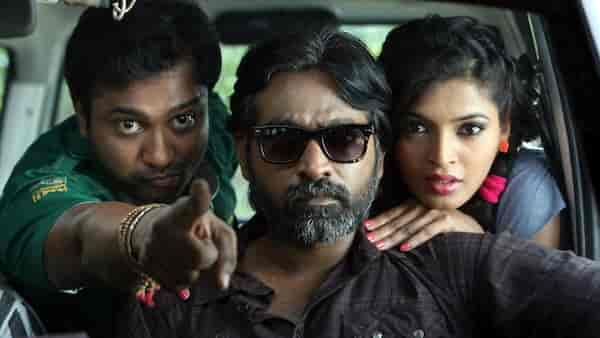
This is something that has stood Vijay in good stead over the years. While he makes new friends across industries and film sets, there’s a core band of brothers who have been a near-constant for many years — Manikandan, Karthik Subbaraj, Balaji Tharaneedharan, Nalan Kumarasamy, all going back to the Naalaya Iyakkunar days. And it is this group, specifically director Manigandan, who gave him his first validation. “It was a short film by Karthik and it had humour and he wanted me to do it. I felt I was not humorous and then Mani told me I could do humour very well. I was 29 or 30 then, and he told me, a bundle of insecurities, that I could do well.”
Remind him about those days, and Vijay smiles. I specifically refer to a clipping featuring him, Karthik, Alphonse Putharen and others, and judge, cartoonist Madan telling them they would go places. “I think the clarity in those creations showed him what potential we had. Some of us continue on that path, some don’t.”
And Vijay has made sure he’s helped many co-travellers along the way. Many young directors have spoken about how he’s had their back when the rest of the world pointed fingers at them. He’s also been accused of signing on films using just his heart and not his head. “I look at it this way. Many of these people have been my anchors when I was down. It can be financially difficult to be present for someone, but this is a choice you make. You choose your friends, you choose your journey and you choose who you travel with. It is not necessary that they have to be successful. There is life beyond success. We share so much, and life’s beauty is that your heart turns mellow when someone needs that help. In that case, money does what money does. If it can help someone, use it."
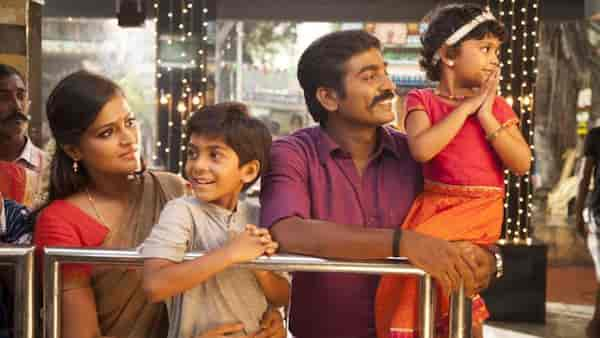
He continues: “The thought that you’ve created a space where (people) feel safe and where they can be themselves, that is your win. We all need someone who we can share our thoughts with. Be that person. That’s your wealth. I’ve received it, you know? So many have given me food, a space in their office, cinema knowledge and more when I was beginning. They’ve taught me directly and some I picked up by listening on the sidelines. Every person is an amalgamation of crores of cells (kodikanakkaana cells-oda kootam). We ask questions about life. What we receive is knowledge.”
This might seem a laidback way of thinking for some, but Vijay says he has always believed in living in the moment. “When a shoot gets cancelled, for instance, I wake up late, relax at home, eat late and reach my office by 5 pm. I might not have done anything considered ‘productive’. I would have scrolled through channels (remote-a nondittuiruppaen), and subconsciously observed what I was watching, because I am a cinema-kaaran (person of cinema) now. If something strikes me as interesting but if I did not get its full meaning, I’ll call someone who will know and tell them this is what I understood, is this right or wrong? I have no qualms in admitting I know very little, and that I am work in progress,” he says.
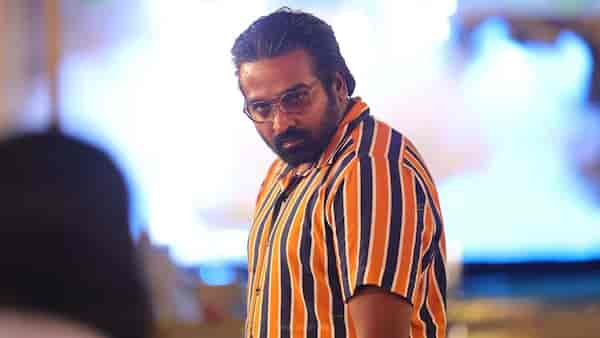
Of late, Vijay has undergone a physical transformation of sorts. Gone is the Vijay of Vikram, jiggling paunch and all. He’s now working out with someone who understands him and his body. Once again, he’s chiselling himself, this time physically. But, when he was not this well-built, what gave him the confidence to walk bare-chested on the screen for Vikram? “Ah, that’s interesting. I was deeply conflicted by the thought of appearing without a shirt. I wanted to at least wear a vest. But Lokesh, whom I trust as a director, kept telling me that, ‘Anna, it will work’. At one level, I gave up and decided to go with his vision. And, the whistles in the theatre proved that. He evidently saw something in that scene that I did not!” he smiles.
For all his soft nature and friendly demeanour, Vijay has slayed the grey/negative character space — think Vikram or Jawan. He is able to bring alive a cerebral, not necessarily physical, meanness, violence and small-mindedness. Is that not draining? “Not really, because these characters offer me a chance to bring out different shades of my personality that I might have never had a chance to reveal. I am sure we all get thoughts that go against our moral core. But we stop ourselves in time from translating that into action. When you play a villain, you get a chance to express it. The greatest freedom is telling the world that, yes I am like this!"
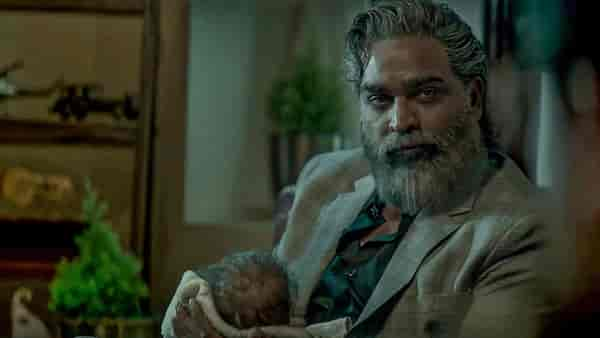
At a deeper level, that is freedom too, provided you don’t hurt others, says Vijay. "I don’t say moral boundaries are bad; they are a fence laid down by society, and many-a-time end up saving people. Moral boundaries are important to ensure people who head out from home return safely. But we should also realise that each one’s moral boundary is different. I can allow certain things, you might stop short of them or take the boundary further. And when the farthest of the boundaries is crossed, one becomes a criminal. That’s what I aimed for when I played the villain. I felt free. But, you’ve seen me long enough in that space. I am not going to play the villain anymore.” Jawan, then, was possibly his last negative role. There’s also his grey role as Perumal or Vaathiyaar in Vetri Maaran’s Viduthalai Part 2 (it premiered at the International Film Festival Rotterdam).
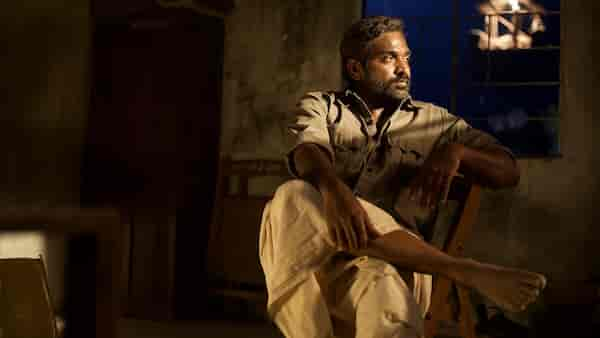
Vijay’s tenderness on screen has been visible over the years in various movies — even Merry Christmas had him narrating a bedtime story to Annie, Maria’s kid daughter, and holding her ever so carefully after he offers to carry her and adjusts her dress before lifting her. Those scenes showed that while Albert had been to prison, his sensitivity had not perished.
Vijay is one of those rare heroes in Tamil cinema who does not mind touching the feet of his partners on screen. In earlier films Iraivi and Sethupathi, he does so — out of remorse and to seek a playful apology, respectively. In Merry Christmas, eyes used to seeing the woman offer the corner of her dupatta or her sari pallu or a hand towel were in for a surprise to see a man make a podi dosa for a woman and offer her his lungi/veshti to wipe her hands. Is it liberating to do such things on screen?
“I think I am that kind of person in real life too," he says. "You tend to do such things when you are the recipient of unconditional love from your partner. My wife has been nothing but deeply loving and kind all these years. I always wonder how women are able to love the way they do. When I am at home, my daughter will showcase her love by feeding me with her hands, she’ll wipe my face, she’ll let me know I am important to her. The essence of women’s love is something else. It is almost like a miracle. I have that, I enjoy that. And, as I grow older, I wonder how life would have been without that kind of love. Middle-aged love is so underrated. You’ve almost grown up with that person."
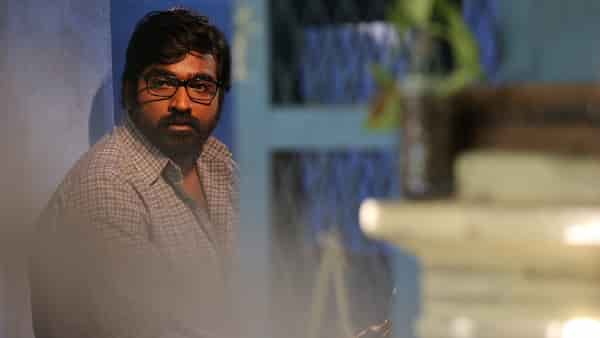
Vijay highlights that men are rarely shown as vulnerable on screen. "We rarely see them adoring their women," he notes. "I think it’s nice to show both on screen. As a man, sometimes even I feel that I don’t have the level of freedom I’d like. Imagine how women must be feeling? I think such moments and scenes on screen are both politically and socially correct.”
That said, Vijay is accepting of the fact that every novel initiative or creative choice might not be everyone’s cup of tea. There is intent and there is perception. “As a creator, if you launch a cup in the market, some will like it, some will say it is average, some will diss it, and some others will celebrate the maker. All of those opinions are valid. Every energy needs a representation. For instance, some felt that 96 was not a love story. And they fiercely explained why. They have to express that opinion or that negative energy will get stored and explode another day. If anything creative does not trigger or invite negativity, I think it’s not good. Quite like society. If there’s only praise, art will suffer. Only when you get criticism and handle it well will you move towards progress. And, if anyone makes a film on a similar subject a decade later, they will take cognisance of that feedback and avoid it, or justify that choice better."
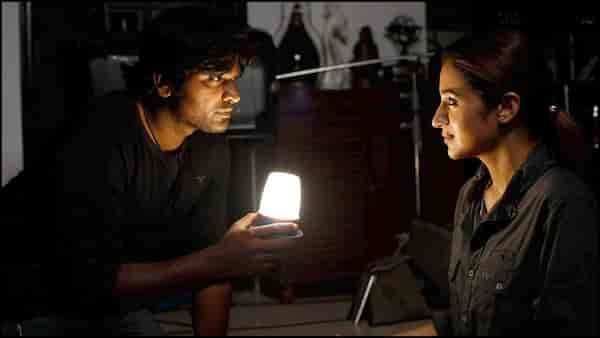
"Also, we should also accept that we all change, every week, month and year. As a child I loved semiya kuchi ice (vermicelli ice candy). Now, I find it salty. I used to eat it with love, allowing the juice to dribble all over. Now, I am not tempted. The tongue is used to more evolved tastes. I wonder how I used to eat it. Basically I have killed the old Vijay Sethupathi and his joy by eating that kuchi ice now,” he adds.
2025 will mark 15 years of Vijay Sethupathi in mainstream roles in Tamil. But the actor-producer insists that one thing that keeps him going is fear. “I am always terrified about my releases… For me, the audiences are my gods. I offer my films to them and they are usually kind.”
To people’s opinion that he’s a natural when it comes to humanising a role, Vijay says that it stems from his innate need to understand a person. “I think if you respect people and try to understand them in particular and society in general, everything falls in place. I’ve made this a practice. So, while playing a character I will never understand or be empathetic towards, I keep searching for an angle of that character that appeals to me, and I take it from there.”

This need to try something new is what drives Vijay as a person. He has dabbled in voice acting (Maaveeran) and performed ‘Roar-a Yethu’ in Coke Studio Tamil, teaming with Sean Roldan and Arunraja Kamaraj. Sivakarthikeyan-starrer Maaveeran benefited largely from Vijay’s voiceover. “When director Ashwin (Madonne) asked me, I was game, but told him I’ll do it on the condition that he’ll scrap it if it does not work. Honestly, I struggled to crack it. I spoke for four days, and hated the output. Then, I thought let me not read the text, but read it as a comic, because that’s how it is in the movie. I was transported to being a little child who read comics aloud. When I spoke with the visuals, I became a narrator, and liked the end result. Even if Ashwin had scrapped it, I would not have been upset, because it was an experience I cherished. I learnt something new, and cracked it."
"That excitement is what keeps me going. The market is a scary place and it will frighten you. That’s its job. But, when you love films, you are usually able to surmount that fear..." Vijay muses. "That said, one day this desire to do new things will stop. It might frustrate me. I will listen to my voice then. Till then, I will stick around, learn and engage.”

 Premium
Premium